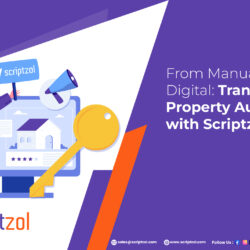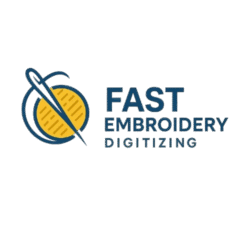The rise of blockchain technology has revolutionized how digital ownership works. Unique digital assets, often called NFTs, have opened new doors for creators, businesses, and collectors. Crafting these assets requires specialized development services designed to handle their distinct requirements.
This blog explains the key elements behind creating successful digital tokens and how expert development services contribute to their quality and functionality.
What Makes NFT Development Special?
Creating digital assets on a blockchain involves more than just coding. It demands knowledge of smart contracts, security protocols, user interaction, and market needs. Development teams bring together technical skills and industry insights to build tokens that operate flawlessly on various platforms.
Core Components of NFT Creation
Developers focus on a few crucial parts when building NFTs:
- Smart Contracts: These are self-executing contracts with terms directly written into code. Smart contracts manage ownership, transfers, and royalties, ensuring trust and transparency.
- Token Standards: Popular blockchain platforms use standards like ERC-721 or ERC-1155. Choosing the right standard impacts compatibility and features.
- Metadata Management: Every NFT includes metadata that describes its properties. Storing and retrieving this data efficiently affects user experience.
- Security Features: Protecting tokens from fraud and hacking is a priority. Developers apply cryptographic techniques to secure transactions and ownership records.
Services Offered by NFT Development Teams
Professional nft marketplace development services cover the entire lifecycle of digital asset creation, from initial concept to launch and beyond.
Consultation and Strategy
Teams start by aligning project goals with blockchain capabilities. They assess market trends and select the best platform and token standards. Clear strategies help avoid technical pitfalls and position the project for success.
Custom Smart Contract Development
Tailored smart contracts enable unique functions like tiered ownership, timed auctions, or royalty distribution. Developers write, test, and deploy these contracts, ensuring they perform as expected.
Frontend and Backend Integration
User-friendly interfaces connect buyers, sellers, and creators with blockchain technology. Developers build web and mobile apps that interact smoothly with smart contracts and display real-time information about digital assets.
Marketplace Development
Many projects include dedicated marketplaces where users can buy, sell, or trade NFTs. These platforms incorporate payment gateways, search filters, and ranking algorithms to enhance usability.
Security Audits and Testing
Regular audits detect vulnerabilities in smart contracts or software components. Testing guarantees transactions occur without errors and that user data remains safe.
Post-Launch Support
Ongoing maintenance keeps digital assets functional and compliant with evolving standards. Support teams handle updates, troubleshoot issues, and implement new features as needed.
Choosing the Right Blockchain Platform
The blockchain chosen for NFT creation impacts transaction speed, cost, and reach.
Ethereum
Ethereum leads the NFT scene with its well-established infrastructure and extensive developer community. Its standards, like ERC-721, set the foundation for most NFTs.
Binance Smart Chain (BSC)
BSC offers faster transactions and lower fees, making it an attractive alternative for projects focused on efficiency and accessibility.
Flow
Designed specifically for digital collectibles, Flow combines scalability with user-friendly design, powering major NFT platforms and games.
Solana
Known for high throughput and low cost, Solana supports complex NFT projects that demand speed and scalability.
Why Businesses Need Expert NFT Development
Entering the digital asset market without technical guidance risks costly mistakes. Development teams provide the expertise to navigate blockchain complexities, from writing bug-free contracts to launching engaging marketplaces.
- Speed: Skilled developers shorten time to market.
- Reliability: Professional code minimizes failures and exploits.
- Innovation: Teams introduce features that differentiate projects from competitors.
- Compliance: Experts ensure regulatory requirements and standards are met.
Key Trends in NFT Projects
Many current NFT initiatives focus on integrating real-world utility and interactivity.
- Gaming: NFTs grant players ownership of in-game items that can be traded or sold outside the game environment.
- Art and Music: Creators monetize works by issuing limited edition tokens that verify authenticity.
- Virtual Real Estate: Digital land sales on metaverse platforms offer new investment opportunities.
- Brand Engagement: Companies use NFTs for promotions, rewards, and community building.
Development services support these trends by building scalable systems tailored to unique project needs.
Read more: How to Hire a Blockchain Developer for Your NFT Project?
Cost Factors in NFT Development
Several variables influence the cost of building digital assets:
- Complexity of Smart Contracts: More advanced functions require longer development and testing phases.
- Platform Selection: Some blockchains charge higher fees or demand specific tools.
- User Interface Design: Intuitive apps improve adoption but require additional resources.
- Security Measures: Thorough audits and cryptographic protections add to expenses.
- Post-Launch Support: Ongoing updates keep assets relevant but increase long-term costs.
Clients should weigh these factors against project goals to budget accordingly.
Steps to Start Your Digital Asset Project
Launching a successful NFT begins with clear objectives and collaboration.
- Define Use Case: Determine what the asset represents and how users will interact with it.
- Select Blockchain and Token Standard: Choose options that match project needs.
- Hire Development Experts: Look for teams with proven experience and positive feedback.
- Design Smart Contracts: Specify ownership rules, transfers, royalties, and other features.
- Build User Interfaces: Create apps or websites for smooth transactions.
- Test and Audit: Identify and fix any vulnerabilities.
- Launch and Market: Release assets with strong communication strategies.
- Maintain and Upgrade: Provide continuous improvements and user support.
Final Thoughts
Digital asset creation in blockchain ecosystems demands specialized skills and careful planning. Professional development services play a crucial role in delivering reliable, engaging, and secure NFTs. Whether the goal is to build a digital collectible, create a marketplace, or launch a branded campaign, expert developers transform ideas into reality with precision and efficiency.
Taking the right approach from the start increases the chances of standing out in a growing and competitive digital marketplace.



